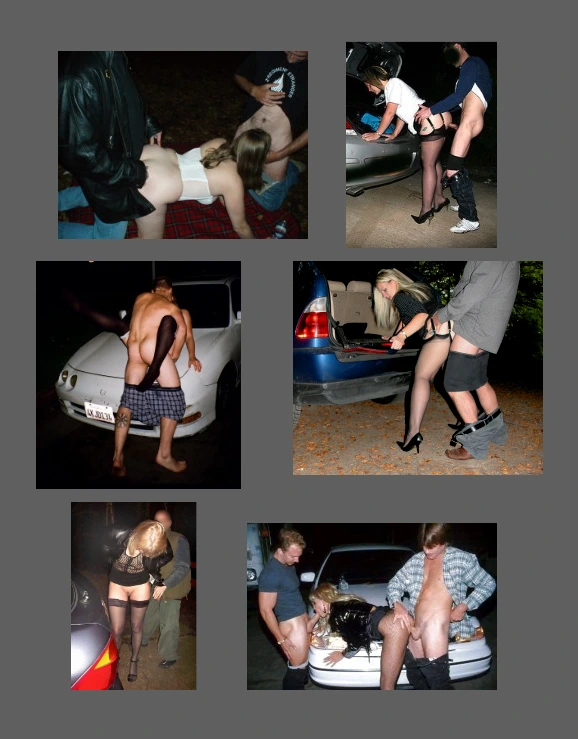This post is in the CRUELTIES category. Don’t read it.
This is going straight in the Cruelties section. Even though episode 1 is quite vanilla, the subject matter is going to be difficult, and there’s no point trying to get people interested in a character and then hiding the rest of the story away.
The story is inspired by the title of this bdsmlr blog: Jolanda-dolcet Slavegirl.
It’s not going to go far at all into Dolcett territory (no gore, no cannibalism, no death, no cooking), but it is going to explore— and try to make at least a little believable, that the incomprehensibly sweet, docile and accepting attitude of the victims in Dolcett’s comics could occur, as it were, ‘in the wild’.
If the name ‘Dolcett’ means nothing to you, you could safely read this before taking any risks.
If you’re going to read, it may be of interest that it is this page from the comic Ali’s Bet which poses the question; How could real girls end up here?
That said, it’s a story. Here goes.
Yolanda is 22, quite pretty, quite clever, personable, quite well read and educated, likes nice things. A very normal seeming girl.
But she’s no-one.
No-one, to herself, that is. A nothing.
She is something to other people— a perfectly acceptable if unexciting daughter, a better than average member of staff at the accountancy firm where she does boring things on a computer all day, has been a satisfactory girlfriend, was an attentive and reasonably diligent student, a pleasant person to have a coffee with.
Picture: Yolanda at work Click here to reveal.

But nothing adds up for her. It’s all … nothing. Her name is the most remarkable thing about her, and although she likes her name as a name, it is a hard name to carry for someone who is nothing— who is just an empty space where an identity ought to be. People seem to expect, when they learn her name, that she will be interesting, exciting, remarkable— something. She can sometimes even see the disappointment in people’s faces, when they find … nothing. Just ordinariness.
It’s not that she thinks she ought to be ‘someone’, though— she has no interest in being the centre of attention— she’d hate that. She’s fine with being ordinary, average, unremarkable— that’s not the problem at all; she knows lots of ordinary people, but as far as she can tell, none of them feel like nothing inside. She can’t believe that, when they look inside themselves, they can’t find anything, try as they might.
It’s not that she doesn’t have feelings, either— its not that she experiences nothing; she has emotions— can be happy and sad and jealous, and desirous, like everyone else. Its not that she doesn’t feel anything. It’s that she feels she is nothing. That there is nothing to her. Nothing of any substance at all. Just a thing which wanders around doing what is expected of it, because that’s what there is to do. No reason for it.
It’s not horrible, not sad, not even boring. It’s not that she’s bored (although she often is), it’s that … well nothing. Nothing she can complain about, not really, and good things happen, too— she can’t deny that.
But she canot avoid the feeling that she is nothing. A void. That there is a void in her.
Mostly, she just gets on with living, and tries not to worry about it. She takes care to dress herself well, makes efforts with her make-up. Nothing out of the ordinary, but she needs, very powerfully, not to look like a failure, a strange creature, to others. The worse she feels inside, the more she is concerned that no-one should have any reason to wonder if she is suffering, weird, weak.
Sometimes she tells herself it’s a phase, that it will wear off, discover that she is something one day, as if waking up. But it seems instead to be getting worse.
Every now and then, it opens up— the nothing— and swallows her; for days at a time she might as well be an automaton— looking like a person, doing exactly what she is expected to do, as normal, but without anything at all happening inside her. When these null periods are over, and she is at least ordinary again, those days fade from her memory like dreams, as if they had never happened.
She reads self help books, sometimes, when the blurb says something that sounds as if it might be something to do wth the feeling of nothing. But they never end up being any help.
She doesn’t really care— because she is nothing, it doesn’t matter.
But sometimes she knows she ought to care, and sometimes she manages to care, and one of those times, she actually does the one thing a book ever suggested which made her pay attention, and spends a lot of money on an expensive residential ‘personal transformation’ course— the book was basically a sales job for the course; all about finding yourself, discovering your inner purpose.
The book was drivel, and she knew it, and the money was far too much (but then she saved lots, because she earned a reasonable salary and was happy with nothing; tiny flat, simple food, no nightlife, no expensive interests); but there was nothing else she could think of to try.
She booked two weeks holiday (she had a year’s worth saved up because she could never see the point of spending money to be nothing somewhere else).
The course takes place in a rather bleak hotel in the middle of nowhere— a fancy old country house with a big ugly 1980s glass slab next to it, adrift in a sea of parking. The course leaders and the ‘VIP delegates’, who have paid a hefty premium on the high price, stay in the nice house, and eat in the dining room there, while the ordinary participants stay in the glass block.
All the sessions are in soulless, tired-feeling rooms there, too. The countryside through the windows, beyond the concrete of the parking is green but bland, unremarkable.
The other participants are a small shock. She hadn’t thought about them, much, but there they were, the people she would spend a week with. And they were mostly older, mostly men, mostly looked richer— apart from the obviously weird ones— there were two or three of them. Her heart sank. This wasn’t a place where she would be understood.
Most of the sessions are meaningless to Yolanda. After a first day of long questionnaires and interviews— the ’evaluation’ day, when she feels at least paid attention to, it becomes a series of long, rambly lectures, interspersed by shorter, call-and-response ra-ra interludes and group ‘workshops’ where people say things that she can tell are fake, or the opposite; go off into personal stories which are clearly deeply felt but which she has no interest in. She does her best, but the nothing is engulfing her more every day; more so because here, she was hoping to make progress— the lack of it, the hopelessness of having made an effort and got nowhere dragging her down.
She knows that this is stupid, that she is wasting the money and the time, but at the same time she knows that she is one of the fake ones in the workshops— she is not telling her truth.
Nno-one else seems as if they have any lack of a sense of being someone; she cannot bring herself to admit that she feels like a nothing, that that is why she is there. So she makes things up.
After three days, she’s on the verge of giving up, checking out and spending the rest of her time off at the seaside, watching other people be themselves, when one of the trainers takes her aside— not Roberto, the author of the book, but his associate, the woman; Marcia.
“Yolanda, we’ve got the deep analysis of the evaluations back, now, and we are going to start putting some people into more in-depth workshops in selected groups. Roberto wants you to join.”
“Roberto”— he was the author, a man who was so sure he was something that he made Yolanda feel as if she did not deserve to live; “Roberto says you have remarkable potential, and is offering you an upgrade to the ‘VIP delegates’ group. There’s no extra charge.”
So she decided to give it another day. At least her new room was pretty, the view out of the window was all countryside and no concrete, and the food was better.
The workshops were different, too; smaller groups, more intense, run by the woman, who was quite powerful.
The focus was on ’trauma blocks’— the idea was that if you found it hard to ‘become your true self’ that you were blocked by something, some trauma, and the first step was to ‘surface’ it.
The woman could see through fake or inconsequential stories, and called them out, but she wasn’t aggressive, or shaming— in fact she told them that they had to get these false stories out— that they were part of it— the way people live with deep hurts, by telling stories that were less painful, to account for their weaknesses, their damage.
This sounded like typical self-help psychobabble to Yolanda, too, but the woman herself was impressive and sharp— paid attention, could see things, kept asking for more, like a terrier, until she got something she was satisfied with.
She kept on talking about this idea of ‘radical honesty’— where you tried not to fool yourself about your trouble, your trauma. You were supposed to be able to tell, inside yourself, if a memory or incident you were thinking or talking about was, really, honest. Not just that it wasn’t an untruth— more than that— that it was a useful and whole truth— that you hadn’t missed out an important part, or stayed on the surface of things.
Yolanda wasn’t sure she understood it, but it was being made out to be very important.
She was even more certain that she could not share the nothing in this group though— not with these people she didn’t know or trust— that she would die of shame if she did. And in any case, she had spent years herself trying to figure out what, if any ’trauma’ might have caused it, and found nothing.
Picture: Yolanda in the group session Click here to reveal.

This radical honesty thing, though, it meant she had to give up something, something real, something significant.
And so she told them about the dogging incident.
Her last boyfriend, she had thought, would be the one. Not that she was madly in love — and didn’t think he was with her either, but Kelvin was kind, steady, dependable, and he liked her. He really did. He didn’t make the nothing better, really, but being with him did distract her, and the null periods were less frequent, and shorter, if for no other reason that he expected her to do all sorts of things for him, as if she were his mum— washing his clothes, cooking all the time, cleaning. She was still nothing, but she was busy nothing, like being at work.
It was fine, and he had friends, and so it seemed as if she had friends, and her parents were happy, and so that was going to be it.
One day he had told her he needed to show her something— that he couldn’t describe it, he just had to show her. It would be a car journey, he said, late evening. He took her for a nice meal, first, and she wondered, was he about to propose? It was awful how little that mattered to her, but she supposed that she would say yes. The thought of having to do all the wedding stuff, feeling like a nothing, when everyone else would be talking about her ‘big day’, was awful.
But it wasn’t anything like that.
She had made a big effort for the meal, but nothing happened, and Kelvin himself seemed on edge, so it wasn’t a great success.
Picture: Yolanda at dinner Click here to reveal.

Then they drove for quite a while— through and beyond the industrial part of town, turned onto a side road which curved into a small wood, then petered out into what, in the daytime, would be some sort of picnic area, with car parking— all very scruffy and unloved. But there were cars, and people and … she had gasped out loud; some of the people were having sex. Quite a few of them. Not Hollywood movie sex, and not porn video sex, and not domestic sex either. Just very simple physical penetrations and vigorous pumping. Mostly people had most of their clothes on, the woman more naked than the men. It was all very tawdry.
Picture: The dogging site Click here to reveal.

“Kelvin, what?”
He was grinning at her, embarrassed, vulnerable looking.
“I … well … what … what do you think?”
She couldn’t make sense of the question; “What I … think?”
She looked out through the windscreen, at the ordinary, puffy, paunchy, saggy bodies, at the sad ordinariness of it, and tried to imagine what he wanted her to say, what he hoped she might think. And then she saw her— a woman, younger and prettier than the others, more naked, too, a man standing behind her— her husband, perhaps, tying her wrists, while two men in front of her pawed at her breasts, her sex— fingers pushed into her mouth, her jaw stretched, made to retch as the fingers went deep, her legs kicked apart. The man behind her stepped back, grabbed a handful of her hair, and yanked her head down, so that she was bent over, legs apart, wrists tied behind her back … and then they were fucking her; one in her mouth, one in her pussy, and then, very obviously, switching to her ass, her whole body convulsing.
The scene burned itself into her mind; she couldn’t look away from the horror of it— the woman was being raped, more or less, right in front of her, three men at her, more gathered round to watch, women too, and they were being rough with her, and she seemed to be crying— it was hard to tell…
And then she remembered Kelvin, sitting next to her, and realised what he must want— for her to participate in something like this, and her insides turned over; she had never felt so strange, and fear gripped her. She knew it was awful; she must think it was awful, but she couldn’t look away.
She felt all these things, knew that they were the right emotions, knew that the fascination was wrong, and simply shut down.
Nothing rose in her, as it had never done before while she was actually talking to Kelvin, and she just about managed to say, in a flat, characterless voice;
“Take me back to my place, please. Right now. And let’s not talk about this. Ever.”
And that had been the beginning of the end, for Kelvin.
The story seemed to satisfy the woman and the group. But it was also the end, for Yolanda, of the course.
Nothing seemed the same after that session. Not that it had done any good; she didn’t feel any different, any less nothing, it wasn’t the dogging which had made her like she was; that had been going on for years beforehand. But somehow everyone in the group seemed to think that she had had her turn, that she must have had her money’s worth.
The last day was awful; the nothing came over her, eating at her, more and more, as the day went on. When Marcia asked her, in the last group session, if she had any reflections on what telling the story had done for her, she had almost panicked, and had to stonewall hard; covering up, knowing she was all too obvious in her attempt to say how much better she felt, when really she was ashamed and miserable, just wanting to be gone.
She left before the closing session, knowing it would be full of efforts to get everyone to say how much better they were, how great they felt, full of hope. It would kill her, she thought. Except, that if she had meant that, that it would actually kill her, she might have gone.
The journey home was bleak, going back to work was a relief.
But the evenings were grey. Nothing. The course had achieved nothing except make things worse. Worse, now, because of the honesty thing. Somehow it has got inside her, that she is supposed to face up to the nothing. And the dogging thing, too; that nagging insistence that she relive it, the girl’s face, the fascination.
The intensity of despair passes with time; after all, she’s been through patches like this before; she just tries not to think, hunkers down, evenings filled with mindless TV.
But it’s worse than before, she knows it; more convinced than ever that this is it, for her. That it will never be better.
Then, a letter— expensive, heavy paper, the logo of the company that ran the course, cheesy picture of Roberto printed on the outside. She nearly tosses it straight in the recycling; upselling her no doubt.
In the end, nothing else to do, she opened it, to find an invitation— handwritten, signed by Marcia, the woman who had run the honesty sessions, with a personal PS.
An event for selected graduates of the course— an event in London— exclusive invite for special alumni— not everyone. The offer was; Personalised introductions to people you need to meet.
And free! (everything to do with the course had been expensive, and they had charged extras for everything). Part of her wanted to go, felt a little stirring of hope, at having been chosen, named, mentioned by name, remembered. But another part of her was wary of once again letting hopes build, and being disappointed.
She can’t decide, and tells herself she’ll think again the next day. A couple of days later, she still hasn’t booked, or decided not to book, and despairs. This is what being nothing does to her. Because she is nothing, then she doesn’t matter. Even to herself. I do! I do! just … just not enough. And so decisions like this just don’t get made, because it doesn’t matter what she does, she will be left with nothing.
Bleakly, she does what she has done before, when a decision has had to be made, that she could not find it in her to make. A solution which is not a solution, but a capitulation. She decides not to decide, but to let chance decide.
Heads I go, tails I don’t.
She flips a coin up, and kneels to look. It’s heads. She feels nothing about the choice— mechanically goes to the website and does the necessary.
But inside, she knows she is less, even than she was. Not a person who can even make a choice.
Not that anything matters, to a nothing.
Read the next part of Yolanda.
CRUELTY TAGS:

An interesting start that makes me want to read more
Thank you! Most encouraging.
More is on its way, and very soon.
Yes a very good start...
Thank you!